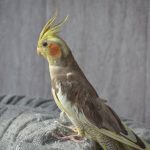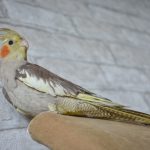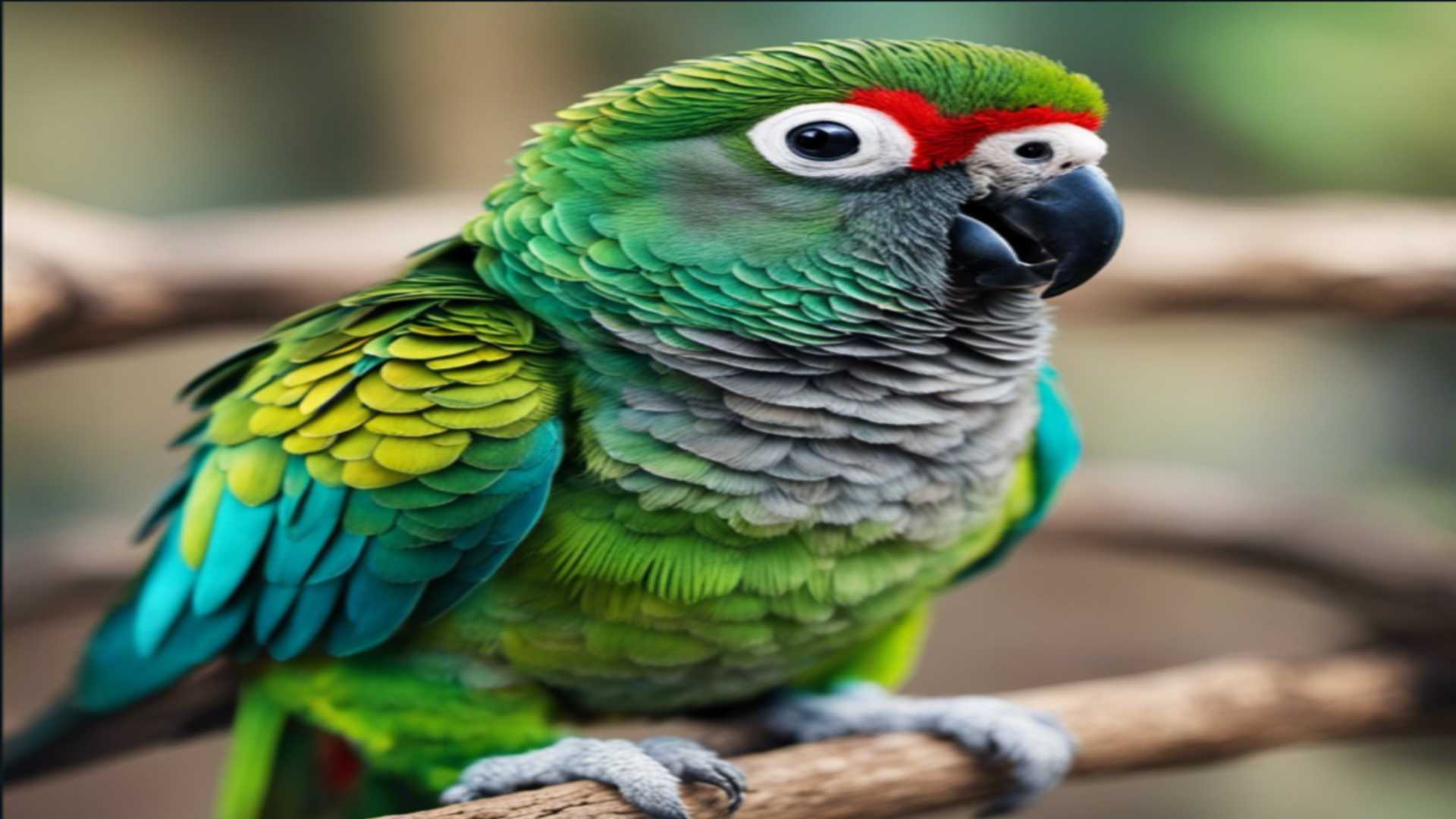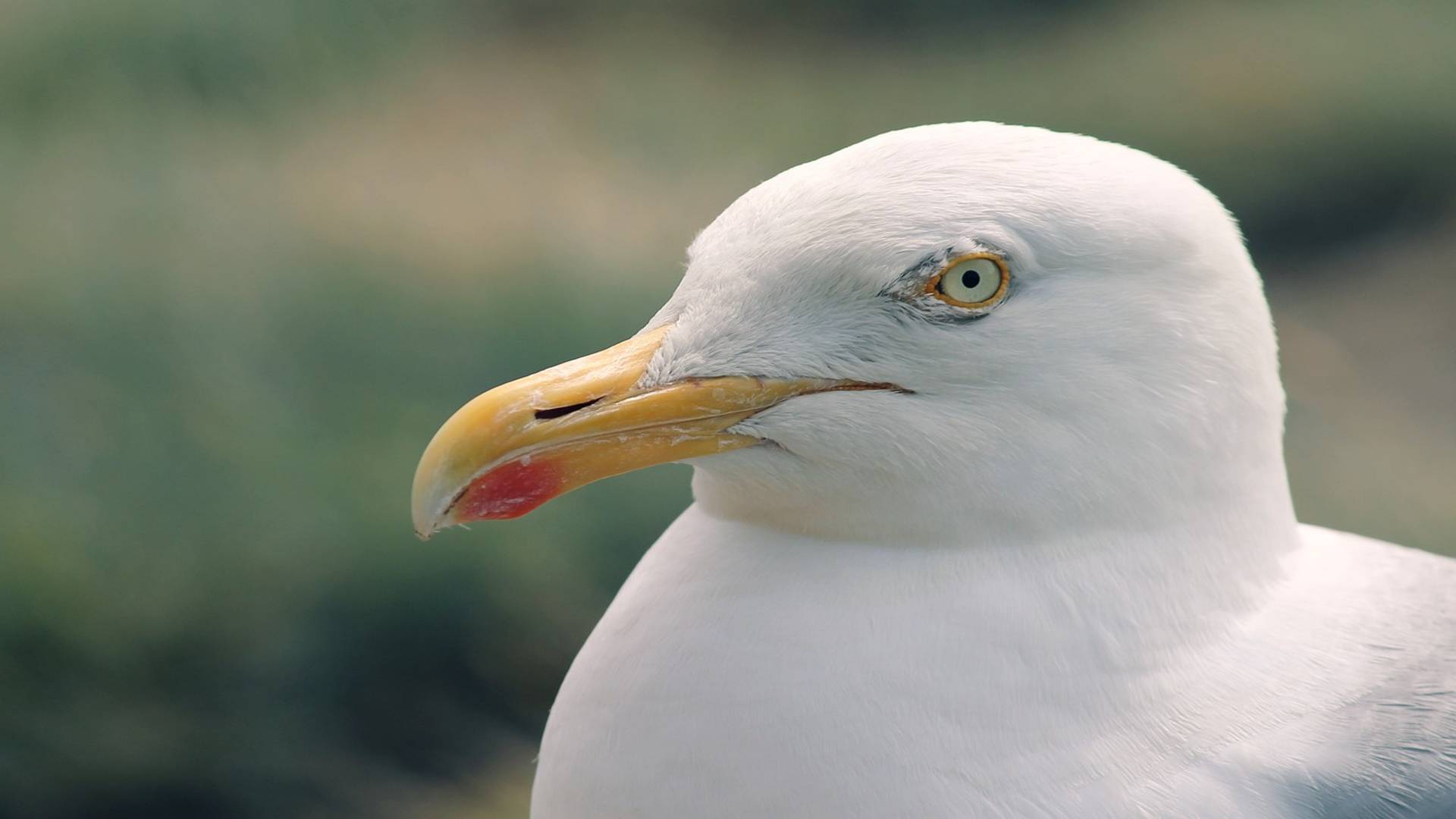Do you own a cockatiel? If so, you may have noticed that they can be quite mean at times. But why are cockatiels so mean?
Here is what I found out:
Cockatiels can be tamed and affectionate with proper care and handling, but they may be territorial and mistrusting of humans. They may act aggressively or bite if scared or mishandled. With a secure environment and familiarity with their caregivers, most cockatiels have gentle personalities.
Cockatiels are known for their playful personalities, but they can also be quite aggressive when they want to be. It is important to understand why your bird is acting out before taking any corrective action.
In this article, we will explore the reasons behind this behavior and provide some tips on dealing with it.
Let’s take a closer look at the reasons behind cockatiel aggression!
Understanding cockatiel behavior and body language
Cockatiels may seem to mean sometimes, but they are actually just misunderstood. Understanding a cockatiel’s behavior and body language can help you get along better with your pet.
If your cockatiel is scared or angry, it will puff up its feathers, squawk loudly, and rattle its wings in a defensive posture. This doesn’t mean your cockatiel is being aggressive; it just means it feels threatened and wants to be left alone.
- Show your cockatiel lots of affection by providing food, water, toys, and time for socialization.
- Be patient when trying to train your cockatiel, as repetition and consistency are key for success.
Paying attention to your cockatiel’s body language can also help you identify when they may be feeling threatened or uncomfortable, allowing you to take steps to de-escalate the situation and create a positive environment for your pet.
Some common behaviors and body language signs in cockatiels include:
- Posturing. This can include puffing up their feathers, spreading their wings, or assuming a dominant stance.
- Vocalizations. Cockatiels can make a variety of sounds to communicate, including whistles, chirps, and clicks. The tone and intensity of these sounds can indicate different emotions or intentions.
- Physical gestures. Cockatiels may use physical gestures to communicate, such as head bobbing, tail fanning, or beak grinding. These gestures can indicate excitement, aggression, or contentment, depending on the context.
- Body language. The body language of a cockatiel can also give clues to its mood and intentions. For example, a relaxed and happy cockatiel may have its wings slightly open, and its tail feathers fanned, while an anxious or threatened cockatiel may tuck its wings close to its body and puff up its feathers.
Training and Socialization
Training and socialization are important for cockatiels as it helps them become more comfortable with humans and their environment. Training your cockatiel can be done through positive reinforcement, such as providing treats or verbal praise when they do something correctly.
Socializing your cockatiel involves spending time with them daily, talking to them, and allowing them to explore their surroundings. This will help them become more confident and comfortable in their environment.
Preventing aggressive behavior in cockatiels
Preventing aggressive behavior in cockatiels is important for the safety of both your pet and other people or animals. To do this, it is important to recognize signs of aggression early on and take steps to de-escalate the situation.
Some tips for preventing aggressive behavior in cockatiels include:
- Establish a routine. A consistent daily routine can help your cockatiel feel more secure and less likely to act out.
- Provide plenty of enrichment activities. Providing your cockatiel with toys, perches, and other items to explore can help keep them entertained and prevent boredom-related aggression.
- Avoid sudden movements or loud noises. Cockatiels can be easily startled by sudden movements or loud noises, so it is important to be mindful of your behavior around them.
- Provide a safe space. Allowing your cockatiel to have a safe, quiet place to retreat to can help them feel more secure and less likely to act out aggressively.
Why are cockatiels so angry?
Cockatiels can be mean because they’re trying to establish dominance in the flock. In the wild, dominant cockatiels will have first access to food and better nesting spots, so they have an advantage over other birds in the flock.
While in captivity, it’s important for pet cockatiels to have a strong leader, or else they can get very aggressive with each other.
They communicate their anger with their owners by biting, chewing on fingers, or hitting with their beaks.
Cockatiels can also become aggressive if they’re not getting enough attention from their owners.
That’s because they are social creatures that need a lot of interaction to stay happy.
If you think your cockatiel is angry because it’s not getting enough attention, try spending more time with it each day.
Cockatiels can also become aggressive if they’re feeling threatened or anxious.
If you notice your cockatiel acting aggressively, it’s important to take a step back and assess the situation.
Are there any new animals in the house that it doesn’t know?
Have there been any recent changes in its environment, such as a move to a new home?
If so, these could be the reasons behind your cockatiel’s aggression.
Once you’ve identified the reason behind your cockatiel’s aggression, you can start taking steps to correct the behavior.
If your cockatiel is acting out because it’s feeling threatened, try to make its environment as calm and relaxed as possible.
Turn off any loud music or television that may be disturbing it, and ensure there are no other animals in the room that it feels threatened by.
If your cockatiel is aggressive because it’s not getting enough attention, try spending more time with it daily.
Talk to it, pet it, and give it some toys to play with. Your goal is to create a strong bond with your cockatiel, so it knows you’re its friend.
Are cockatiels aggressive?
No. Cockatiels are not aggressive by nature. In fact, they are one of the tamest bird species you can find. The vast majority of cockatiel problems that people have to deal with are usually due to a lack of knowledge on how to care for these birds properly.
A big part of being a responsible cockatiel owner is understanding your bird’s body language and knowing when it’s time to back off before things get too out of hand.
That said, there are always a few bad apples in every bunch, and there may be times when your cockatiel does become aggressive for no obvious reason.
If this happens, it’s best to try and determine what might be causing the stress and address the problem
Some of these reasons could be:
- Your cockatiel is not getting enough attention
- It feels threatened by something or someone
- It’s not getting enough exercise
- It’s in pain
But one of the most common problems I have found among cockatiels is hormonal changes.
Is your cockatiel chirping nonstop? If so, this could be due to the reasons explained above, but if you want to learn more about it, I encourage you to read a recent article I published. There, I break down all the different reasons behind this behavior so that you can better understand your bird.
Just click the link to read the article.
Cockatiel hormonal behavior
There are several stages in a cockatiel’s life during which hormonal behavior can occur. One of the most common times for hormone-related behavior problems is when the bird is going through puberty. This usually happens around six months of age, but it can vary depending on the individual bird.
Other times when hormonal behavior can occur are during the breeding season and when the bird is molting.
If you’re concerned that your cockatiel’s behavior might be due to hormones, it’s best to speak to an avian veterinarian who can help you determine what might be causing the problem and how best to address it.
In males, testosterone levels increase during the breeding season to mate with a female.
This can cause them to become more aggressive and territorial and even, in some cases, start chirping loudly throughout the day.
Also, in the breeding season, estrogen levels increase in females, which results in more preening and care for their chicks, so if you notice your female cockatiel behavior changes all of a sudden, this might be the reason why.
But let’s explore a few of these reasons in detail below.
Why is my male cockatiel attacking the female?
As I mentioned above, one of the most common reasons for cockatiels to exhibit aggressive behavior is during the breeding season. Still, there are other reasons your male cockatiel might be attacking the female.
Some of these other reasons could be:
- He’s feeling territorial and is trying to assert dominance over her.
- He’s not used to being around other birds and isn’t quite sure how to socialize properly yet.
Either way, it’s important to stop the attacks before they escalate and cause serious injury.
One way to reduce aggression is by providing more perching space for your birds.
This will help them feel less crowded and more comfortable, which may help them get along better.
Why is my female cockatiel suddenly aggressive?
It’s possible that your female cockatiel is hormonal. Most likely, she is experiencing the breeding season and is becoming territorial in her territory and nesting spots.
While cockatiels are generally known for being gentle and affectionate birds, they can sometimes become aggressive, especially during the breeding season.
If your female cockatiel is suddenly acting aggressively, it could be due to a hormonal imbalance.
In fact, during the breeding season, female cockatiels produce high levels of the hormone estrogen, which can lead to aggression. In addition, female cockatiels may become aggressive if they feel threatened or try to protect their nest.
If you suspect that your bird’s aggression is due to hormones, you can try giving her a diet rich in calcium, which will help to regulate her hormone levels.
If your bird’s aggression is due to nesting instinct, you can try moving her nest to a quieter location. In most cases, the aggression will subside once the breeding season is over.
Cockatiel angry sounds
Summary
Before we move on to the conclusion, we’ve summarized this article into a short list of key points for you to remember:
- One way to reduce aggression in birds is by providing more perching space.
- Female cockatiels may become aggressive due to hormonal imbalances or nesting instinct.
- To calm an angry cockatiel, remove any potential sources of stress, offer it a favorite treat, talk to it in a soft voice and avoid making sudden movements or loud noises.
- Listening to your cockatiel’s sounds can help you identify the source of the aggression.
Conclusion
We covered a lot of material in this article, but hopefully, you now have a better understanding of why your cockatiel might be getting angry and some things that you can do to help.
I discussed how cockatiels are naturally social creatures that need interaction and how a lack of this can lead to aggression.
I also talked about how important it is to understand your cockatiel’s body language so that you can better gauge how they are feeling and what it might need.
So, It is important to remember that aggression in cockatiels can have many different causes. If you are not sure what is causing your bird to act out, it is best to consult with a veterinarian or an experienced avian behaviorist.
Only by understanding the root cause of the problem can you correct it.
Want to learn more about cockatiels?
Ready to boost your knowledge to the next level? If so, check out the articles below:
- Can Cockatiels Sleep With Noises? Are They Noise Sensitive?
- When Do Cockatiels Learn To Fly? (Ultimate Flying Guide)
- Why Do Cockatiels Use Their Feet To Eat? (5 Examples)





